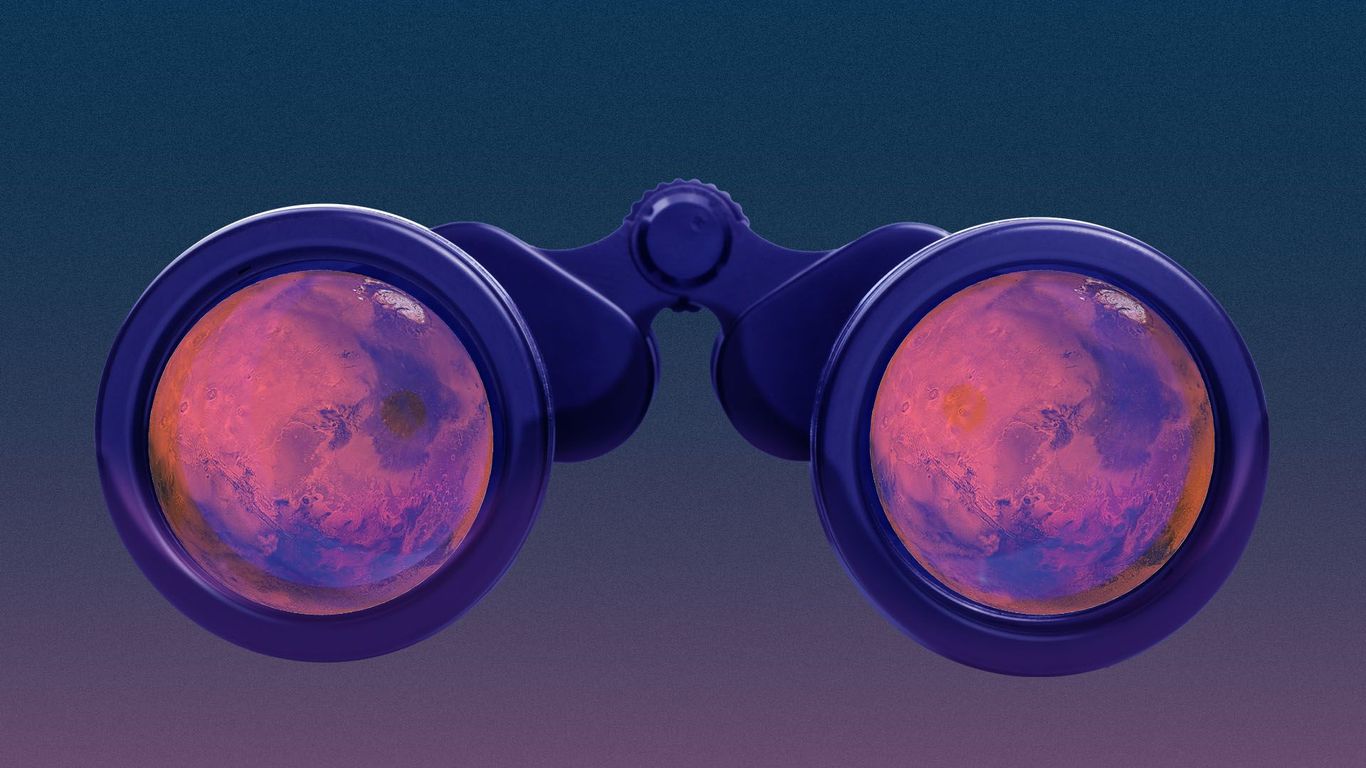
The rovers and orbiters studying Mars are being tasked with answering the persistent questions that remain about the Red Planet, decades after NASA sent its first missions to the world.
Why it matters: New spacecraft recently sent to Mars will help NASA and other space agencies fill in gaps in knowledge, moving them ever-closer to finding out whether the world once played host to life.
- But answering questions about Mars' past and its potential for life will likely take more spacecraft, and possibly even human missions to solve.
Driving the news: A study published this month suggests much of Mars' water may have been absorbed into the ground, not lost to space, as scientists have thought for decades.
- Thanks to this new study, scientists have been able to start to square the planet's geology with what they know of how its atmosphere was lost, painting a clearer picture of why the world is now the barren one we see today.
Yes, but: Not all questions about Mars can be quickly answered with current data.
- Perhaps the most pressing question has stood for centuries: Has life ever existed on the Red Planet?
- NASA is just scratching the surface of answering that question using its Perseverance rover — the first mission dedicated to hunting for past Martian life — which made it to Mars in February.
- Even that rover likely won't be able to find signs of life on its own, however. Perseverance is expected to cache samples for a return to Earth on a future mission that will allow scientists to use high-powered tools to analyze the samples.
The big questions: Although scientists know Mars was once habitable — at least for microbial life — it's still not clear that the environment could have supported diverse and abundant life as we see on Earth.
- While the planet did have lakes and rivers, researchers don't know exactly how warm the planet was.
- "There are a lot of basic things we still don't know, like how warm or how wet was ancient Mars? Was it a cold, icy barren world or was it this warmer, wetter ... warm desert planet?" Purdue University planetary scientist Briony Horgan told me.
Rovers on the planet have also found the world is scattered with layered rocks, but no one is quite sure how they formed.
- Scientists' best guess at the moment is these layers formed through erosion, wind, water and ice. But we don't see rock layers like this on Earth because they're destroyed by plate tectonics, which don't exist on Mars, Horgan added.
The intrigue: Sending rovers and landers to Mars has actually complicated scientists' understanding of the Red Planet.
- "When you only have one data point, it's easy to make a model that fits that one data point, but when you have 50 data points, it's a lot harder to find the right model to fit those data," NASA Mars researcher Abigail Fraeman told me.
What's next: Human missions to the Red Planet could one day help resolve these mismatches between data beamed back from spacecraft in orbit and rover-collected data from the ground.
- Having people on Mars would allow scientists to easily move to other parts of the planet to search for interesting rocks without the planning and guesswork that goes into a rover's roadmap, experts say.
Science - Latest - Google News
March 30, 2021 at 04:00PM
https://ift.tt/3dn3iJg
We're starting to answer some big questions about Mars - Axios
Science - Latest - Google News
https://ift.tt/2Kb7H4e
https://ift.tt/3ceUkwc
Bagikan Berita Ini

















0 Response to "We're starting to answer some big questions about Mars - Axios"
Post a Comment